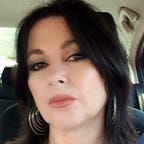Internalized Oppression and Voice: An Adoptee Activist Perspective
The widely recognized phenomena of internalized oppression, occurs when members of a marginalized group, who are subject to inequalities and subordination, identify with their oppressor and participate in or champion the methods used to propagate the ongoing oppression. [i] [ii] [iii]
Some examples, drawn from the work by David (2015), may include:
- A person with a disability who refuses to associate with other people with disabilities because they think they are ‘inferior.’
- A woman who views a victim/survivor of rape with disdain - they may claim they were “asking for it.”
- An Italian immigrant (e.g., to Australia) who assimilates and ridicules their heritage or feels ashamed of their culture and discriminates against other Italians immigrants for not being ‘Australian’ enough.
- Adopted adults who purposefully admonish or devalue activists who speak about issues in adoption because they want to assimilate or conform with the dominant discourse.
As an adoptee activist, I have witnessed internalized oppression.
Some may ask “what does an adoptee activist mean?” It means different things for different activists. For me, it means I spend unpaid hours commenting and blogging on adoptee related issues, writing letters to politicians, journalists, organizations and engaging with other adopted adults (e.g., social media, over the phone, via email and sometimes face-to-face). In most instances, my letters, which are directed to editors of mainstream publications, are ignored. This happens to many activists.
I know that these efforts will be met with resistance. I know that my voice will be ignored and infantilized by some in power — I have come to expect it. This marginalization does not stop me though, in fact this silencing strengthens my resolve to continue. My voice, and those of other activists, are pivotal, we give meaning to the lived experience of adoption. Despite this, and what I find upsetting, is internalized oppression.
In my view, internalized oppression occurs in our community when adopted adults become a proxy for the continuation of a plenary adoption system that is underpinned by inequality [iv] and exploitation[v]. Admitting that we are part of a marginalized group is difficult. If we call out issues in adoption we are viewed by some as propagating negative stereotypes[vi]. In fact, what we are championing is social justice and equality and by doing so we are contributing to our collective strength. We are promoting our ‘voice’.
In general, adoptee rights activists are calling out a system that has subjugated and marginalized[vii] minority groups[viii], legitimatized one mother (adoptive) over another (e.g., natural or birth mothers) [ix] [x]and relegated adoptees as ostensibly second-class citizens. In Australia, we are campaigning for equality and abolishment of an archaic plenary adoption system that is arguably oppressive[xi] and highlighting the need for change.
Pursuing this further, and despite the ongoing obstacles, activists like me will continue to lobby to be included in the discourse. We will continue to highlight the structural inequalities that impact vulnerable families and to speak out against measures that can lead to an adoption driven system. We will continue to draw attention to the impact of draconian laws (e.g., contact vetoes) as a function of adoption policies and practices, that impact on adoptees and our natural families today. We will strive to read and share information that illustrates the drivers that continue to separate children from their biological families, often due to surveillance, poverty or lack of support systems.
How do we overcome internalized oppression? I don’t proclaim to have the solution and I certainly do not always get it right either. The evolution of my activism continues and I am still learning. However, it is my hope that the growing chorus of ‘dissenting’ (sic) adoptee activists will legitimize our collective ‘voice’ and by doing so, other adopted adults will feel proud to stand beside us as a community (e.g., legitimate peripheral participation which is a journey that I’m still on).
Finally, this is not about a false dichotomy of choosing activism and disowning your adoptive family! Heck no, I love my adoptive family but I can separate that love from the inherent issues. This is about looking at the system itself through a wider critical lens. It is about embracing and privileging our ‘voices’, aligned with human rights instruments[xii], above the power structure of dominant non-adoptee voices. It is about solidarity.
“Voice is meaning that resides in the individual and enables that individual to participate in a community … The struggle for voice begins when a person attempts to communicate meaning to someone else. Finding the word, speaking for oneself and feeling heard by others is all a part of this process … Voice suggests relationships: the individual’s relationship to the meaning of her/his experience and hence, to language, and the individual’s relationship to the other, since understanding is a social process. (Britzman, 1990, quoted in Connelly & Clandinin, 1990).”[xiii]
Sources
[i] http://funknbeans.com/2016/12/social-justice-and-internalized-oppression-internalized-by-raindawgtao/
[ii] https://en.wikipedia.org/wiki/Internalized_oppression
[iii] https://www.psychologytoday.com/intl/blog/unseen-and-unheard/201509/internalized-oppression-we-need-stop-hating-ourselves
[iv] http://www.academia.edu/26367687/Adoptee_Manifesto.docx
[v] https://theestablishment.co/adoption-is-a-feminist-issue-but-not-for-the-reasons-you-think-93ba3824bcbb/
[vi] https://www.psychologytoday.com/intl/blog/unseen-and-unheard/201509/internalized-oppression-we-need-stop-hating-ourselves
[vii] http://www.aph.gov.au/DocumentStore.ashx?id=a70034e9-001a-48f7-9267-8ab44add3b76
[viii] http://www.susanharness.com/colonization-and-adoption-a-history/
[ix] http://www.womenspress.com/Content/Features/Features/Article/Feminist-lens-on-adoption/1/1/3238
[x] https://www.amazon.com/Beggars-Choosers-Politics-Adoption-Abortion/dp/0809028603
[xi] For further explanation pertaining to adoptee rights, please refer to adoptee rights activist, Dr Catherine Lynch: https://www.academia.edu/36472637/AARAG_submission_to_inquiry_into_barriers_to_local_adoption.docx and http://www.ipsify.com/in-conversation-with-catherine-lynch-adoption-activist-mother-lawyer/
[xii] https://www.humanrights.gov.au/convention-rights-child
[xiii] https://www.jstor.org/stable/1176100?seq=1#page_scan_tab_contents
